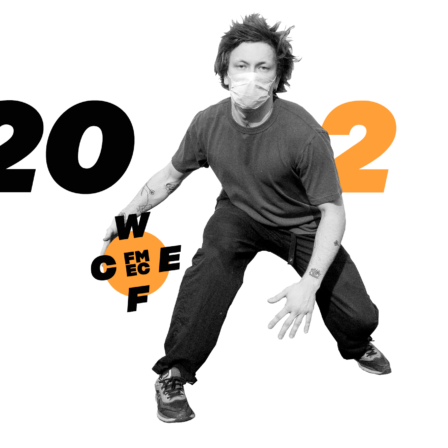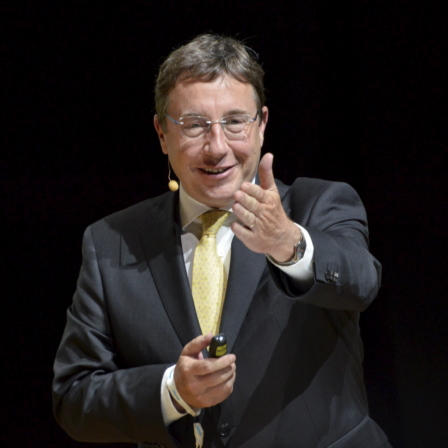Organiser: SEB
Date & Time: Wednesday 7 June at 13.30 – 16.00
Location: SITRA, Auditorium, Itämerenkatu 11-13, 00180 Helsinki
Description: Please join us in an interesting seminar showcasing some of the latest thinking and research from the field of sustainability, and what value destruction and creation it will imply. Global megatrends such as climate change and CO2 emissions have been extensively discussed and analyzed also from the capital markets view point.
However, areas such as circular economy, water shortage, land scarcity and fourth industrial revolution in all its facets can have an even more profound impact in creating and destroying value over the next years. We will explore some of the latest thinking on how natural resource scarcity and associated technology will hit the mainstream capital markets in the next wave; look at how non-linear disruptions can be analyzed and why the European automotive industry could lose 40% of its enterprise value in less than a decade; look at how equity investors can value non-financial sustainability factors and how companies can identify the most value adding sustainability areas to invest in.
This Seminar is part of the World Circular Economy Forum 2017, a high level event that gathers world’s top business leaders, policymakers, researchers and innovators professionals to Helsinki on June 5-7. WCEF2017 is organized by SITRA, Ellen MacArthur Foundation, Nordic Council of Ministers, Ministry for Foreign Affairs of Finland, Ministry of the Environment, and Ministry of Economic Affairs and Employment of Finland together with a number of co-organizers.
Detailed programme:
| 13:30-14:00 | Registration & refreshments |
| 14:00-14:10 | Opening & Introduction, Jukka Honkaniemi, SEB |
| 14:10-15:45 | Presentations |
| 15:45-16:00 | Q&A and Conclusions |
SPEAKERS
Per-Anders Enkvist, Founder and CEO, Material Economics
Per-Anders Enkvist was a consultant with McKinsey & Company from 1999 to 2015, the last seven years as a partner in its sustainability practice. He was the global leader of McKinsey’s work on climate change, and a global co-lead on circular economy. He worked with companies on strategic questions related to low-carbon growth opportunities, regulatory risks and opportunities, renewable energy, carbon finance, commodity price implications, and circular product design.
Per-Anders has now started Material Economics, a management consultancy specialized on strategic sustainability topics. There, he helps companies and governments think through strategies related to natural resources, sustainability, new technology, and the threats and opportunities these imply. Per-Anders holds a M.Sc. in Engineering Physics from Chalmers University of Technology, and a B.Sc in International Business from the Gothenburg School of Business, Economics and Law.
Luca De Lorenzo, Head of Climate, Energy and Society Unit, Stockholm Environmental Institute
Luca De Lorenzo joined SEI Stockholm in May 2015, with 10 years of experience in working within the energy sector. His work focuses on energy economics, energy policy and business models and the associated transformations required to move towards a sustainable development model. Prior to SEI, Luca has worked at The Boston Consulting Group, where he was a core member of the Energy Practice of the firm, helping clients with their business models, corporate strategies and overall competitiveness in response to evolving energy markets and regulations. Luca started his career within the oil and gas sector at BP, where he held several positions in both the upstream and downstream businesses.
Luca holds a B.Sc in Mechanical Engineering (Energy Major) from Politecnico di Milano, Italy and a M.Sc. in Mechanical and Aerospace Engineering from Princeton University.
Julian Beer, Head of ESG Financial Advisory, SEB
During his 20 years with SEB, Julian has been a top ranked equity analyst in the Oil, Oil Services, Metals and Mining, and Capital Goods sectors. In 2014, he assumed responsibility for developing methodology to integrate non-financial parameters into SEB Equities’ standard financial valuation process. This methodology is now known as the “SAFE” approach, or “SEB’s Adjustment for ESG”. A key element of SAFE has been an unerring focus on value impact, rather than using the currently popular qualitative system of ESG assessment.
In 2016, Julian was appointed to head SEB’s ESG Financial Advisory unit, which advises all financial analysts in the bank, as well as institutional investors and corporate clients.
Prior to joining SEB, Julian spent 12 years working for BP and JP Morgan in oil related operational, commercial and financial advisory roles, based in the UK, France and Russia. Julian is a chemical engineer by degree, and holds an M.Eng. from the University of Bradford. He lives in Stockholm with his family.
MODERATOR
Jukka Honkaniemi, Senior Banker, SEB
Jukka Honkaniemi is a Senior Banker and Chairman of the Large Corporate Sustainability Committee at SEB. During his 11 years with SEB, Jukka has advised companies on strategic financial issues in business transformations as well as led the client franchise in Finland and corporate segment globally. Prior to SEB he worked for 15 years at Citigroup in Helsinki and London in various leadership roles.
Jukka has an MBA (hon.) from Helsinki School of Economics and B.Sc. in Economics from University of Oregon. He is also a DBA candidate at Aalto Executive Education researching the impact of sustainability on financial value and risk.
Contact: Maija Skåtar, Executive Assistant, maija.skatar@seb.fi, 0509106545
















Recommended
Have some more.